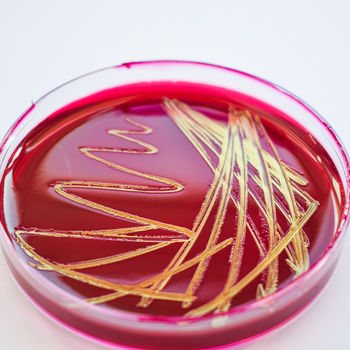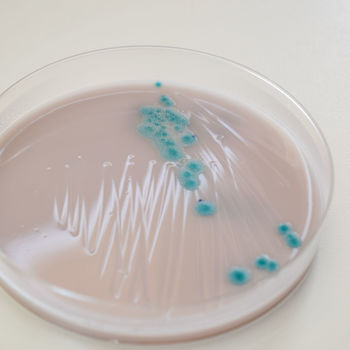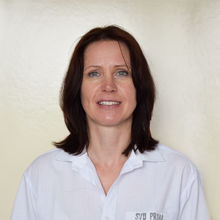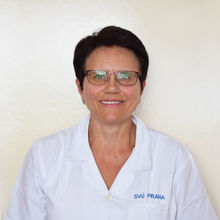Bacteriology
The Bacteriology department is a compact, dynamic team of sixteen staff members dedicated not only to performing technical tasks in the field of microbiology, but also to ensuring centralised services including the actual process of preparing diagnostic media or washing laboratory glassware & equipment emanating from the activities of other SVI labs.
These expert activities as such are undertaken in several separate laboratories that fully reflect the different requirements in approaches to process the individual kinds and types of samples. This involves a lab for autopsy specimens testing biological materials sampled by pathologists during a post mortem exam and a clinical bacteriology lab investigating biological materials dispatched by veterinarians or animal owners from the field. Targeted diagnosis of dangerous bacterial agents of large-scale animal diseases such as genital campylobacteriosis of bovine animals, contagious abortion in mares, or American foulbrood, is conducted in a laboratory dedicated to special bacteriology.
There are also several reference laboratories active as part of the department. These involve NRL for salmonella, NRL for antimicrobial resistance, NRL for diagnosis and epizootology of tuberculosis, paratuberculosis and other mycobacterioses, and RL for anthrax. The activities of the reference lab listed above are enshrined in both national and European legislation. It is pro-actively involved in handling current tasks arising from its area of specialisation. It also co-ordinates and provides a professional umbrella for laboratory diagnosis in the field of its competence. In addition to the above, it is also involved in the network of European reference laboratories.
The provision and continued development of the diagnostic and technical activities on such a broad scale require both a good background in terms of materials and technology as well as adequate staffing. Hence the department consists of five members with a university education in animal health, two employees with higher vocational education, five staff members engaged as special lab technicians and four workers active as lab assistants. As regards materials and technology, bacteriology diagnosis is backed up by advanced diagnostic methods based on mass spectrometry of the MALDI-TOF type. Another pillar of the diagnosis services involves the use of sophisticated molecular-genetic methods, including the bacterial genome sequence analysis conducted by the lab specialised in molecular methods.
There are several fundamental factors to consider when deciding which lab the customer should eventually sends their samples to for analysis. In addition to the price, they particularly include the level of quality and expertise as well as the readiness and professionalism of the lab staff. However, today one might ask if that is really enough. Can we offer something extra? We believe that we can. What is it then, which actually adds value to the services of SVI Prague’s bacteriology lab? What can we offer? We think that the range is nothing but small: In addition to daily procedures, for example, we offer comprehensive health tests in laboratory animals as per the recommendations of the Federation of European Laboratory Animal Science Associations (FELASA), proof for all types of botulinum toxin through biological experiments within the full range of biological materials, and comprehensive genus and species typing of isolates of bacteria, yeast micro-organisms and fibrous micromycetes sent and originating from not only animals, but also from foods, feedstuffs and environmental materials.
The Bacteriology team is ready to help you to tackle your microbiological diagnosis problems while accounting for your specific requirements to the greatest possible extent. We look forward to working with you.
